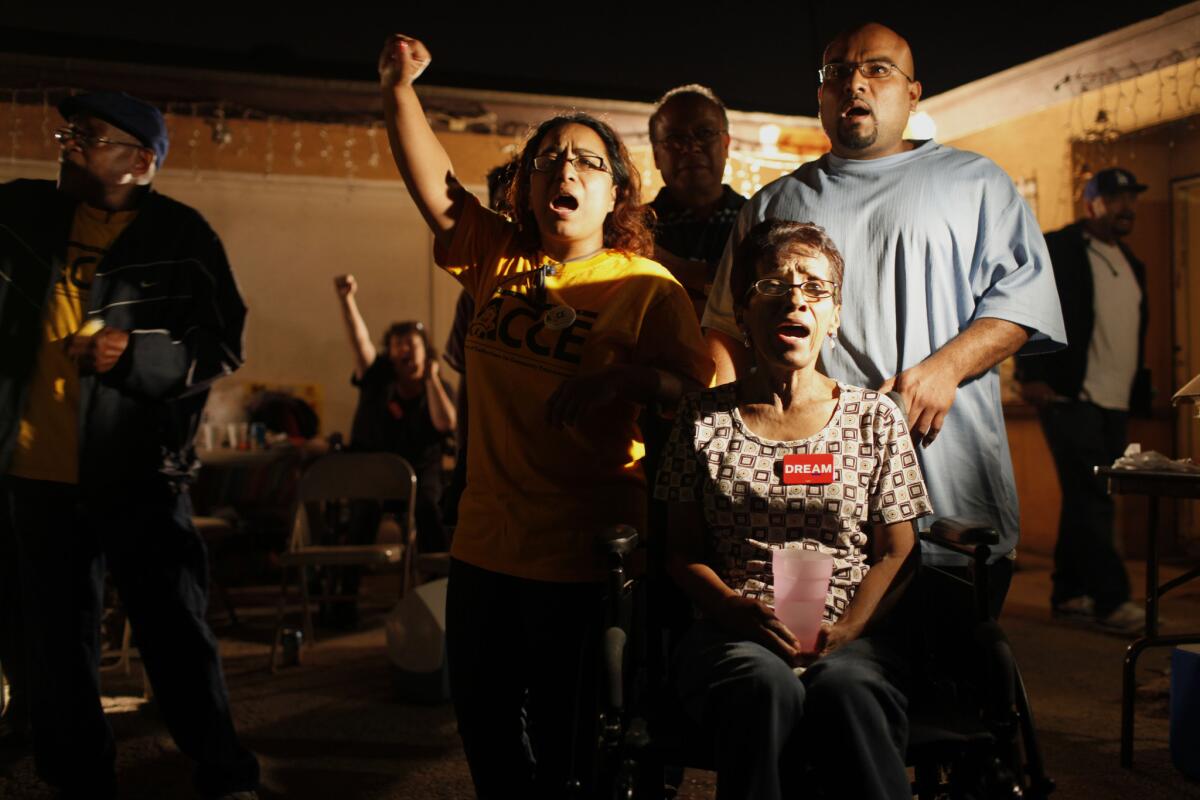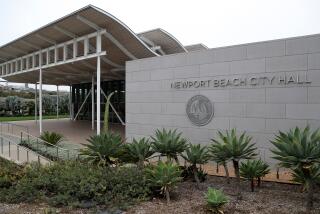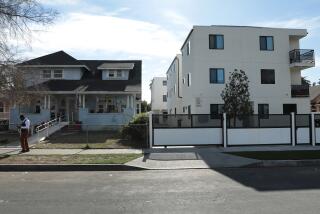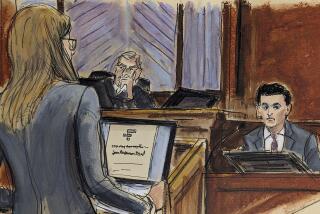Protesters challenge $3.4-billion purchase of OneWest

Two major advocacy groups for low-income Californians are calling on the Federal Reserve to reject the proposed $3.4-billion acquisition of Pasadena’s OneWest Bank by CIT Group -- at least until community groups can sound off at a public hearing.
“For the past five years, OneWest has been positioning itself as a bank for the wealthy,” said Orson Aguilar, executive director of the Greenlining Institute in Berkeley.
“The last thing California needs is a too-big-to-fail bank for the 1%,” he said.
In letters sent Friday to the Fed and other regulators, Greenlining and San Francisco’s California Reinvestment Coalition said OneWest has a poor track record in serving minorities.
Executives at OneWest and commercial lender CIT in Livingston, N.J., did not respond immediately to requests for comment.
The groups said the bank and CIT have been too vague in their promises about how they will comply with the Community Reinvestment Act of 1977, which requires banks to serve all economic segments of the regions in which they operate.
Greenlining said OneWest’s Community Reinvestment Act plan “appears to commit the bank to no new lending whatsoever and makes only a trivial gesture toward advertising with minority-owned media outlets.”
OneWest’s predecessor company, the high-risk mortgage specialist IndyMac Bank, collapsed in 2008 in what became the costliest bank failure in history.
The Federal Deposit Insurance Corp. wound up striking a deal with a group of billionaire investors, including hedge fund operators George Soros and John Paulson and computer baron Michael Dell.
The investors recapitalized the failed bank with more than $1.5 billion -- but only after the FDIC agreed to shoulder most of the losses from IndyMac’s loans.
The losses to the deposit insurance fund, originally estimated to total $4 billion to $8 billion, mushroomed eventually to more than $13 billion.
In its letter to the Fed, Greenlining complained that the FDIC was allowing the loss-sharing agreement to be transferred to the new bank and “could leave taxpayers on the hook.”
FDIC spokesman David Barr said the agency would have no comment.
Aguilar said if the regulators “choose not to immediately reject the proposed merger outright,” they should at least “extend the public comment period, hold public hearings in Southern California and provide greater transparency, including details about the implications of the loss-share agreement.”
Follow @ScottReckard for news of banks and home loans.







